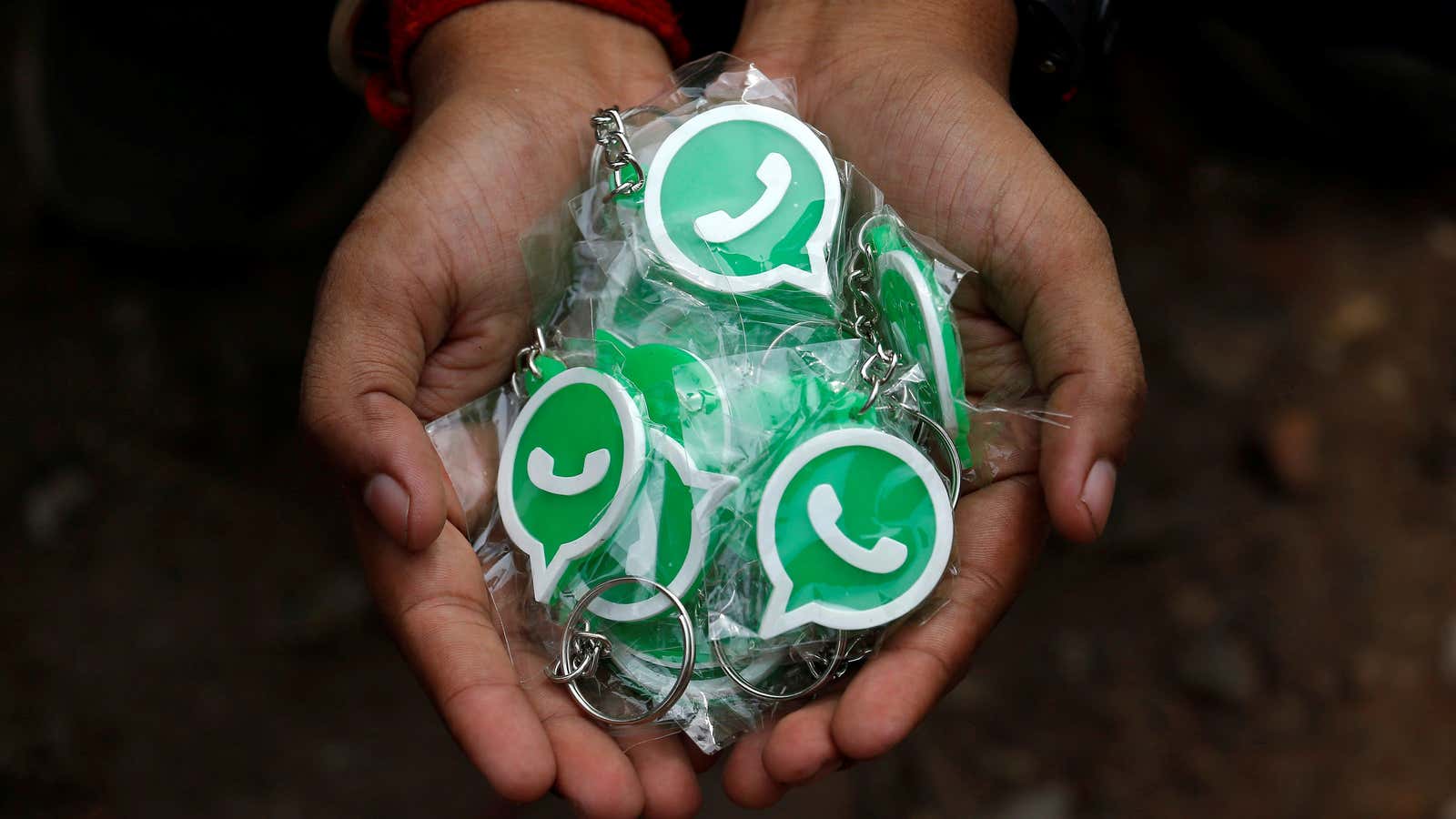Facebook doesn’t make much money from WhatsApp. But CEO Mark Zuckerberg has said that forcing the company to sell the messaging app—as US prosecutors have called for in a new antitrust suit filed on Dec. 9—represents an “existential” threat to the business.
That’s because Facebook has big plans for its little green app, which boasts 2 billion global users.
Both WhatsApp and Instagram are targets of the suit filed by the US Federal Trade Commission and a coalition of attorneys general, which claims that Facebook’s acquisitions make it an illegal monopoly. But losing WhatsApp would mean losing the chance to claim a piece of consumer spending in growing markets like India and Brazil, where WhatsApp rivals or surpasses Facebook in popularity and is already establishing itself as a powerful business tool.
There are already 175 million people using WhatsApp to message a business each day, most of whom are outside the US. In those users, Facebook sees a chance to expand its role in e-commerce. That’s especially true in India, whose 390 million WhatsApp users significantly outnumber those on Facebook, and a new digital payment function recently cleared regulatory hurdles (although some speed bumps remain).
WhatsApp has forged payments partnerships with Indian heavyweights like Reliance Industries and small businesses looking for ways to reach customers during the pandemic. “The combination of payments and the stickiness of a chat messaging service gives WhatsApp immense power to disrupt the fintech space,” Aparajita Srivastava, partner at New Delhi-based Ikigai Law, told Quartz in August.
It’s not just India’s market that Facebook stands to lose: In African markets, which are also seeing a boom in mobile payments, WhatsApp is so popular that even knockoff versions of the app have more users than Facebook.
Expanding into payments would help round out the new online shopping features the company has rolled out on its other apps. “Instagram and Facebook are the storefront,” WhatsApp Chief Operating Officer Matt Idema explained in an interview with Bloomberg. “WhatsApp is the cash register.”
In a sign of the value Facebook sees in WhatsApp, the company snapped up a new acquisition just before the antitrust lawsuit landed: customer relationship management startup Kustomer. Facebook paid nearly $1 billion for the company, whose expertise will likely boost the ability to market WhatsApp as a customer service tool.
All of these moves would allow Facebook to diversify its business model, which currently draws virtually all of its revenue from digital ads. If users decamp from Facebook en masse—say, to an independent, competing social media platform—it’ll need to come up with alternatives, fast.
